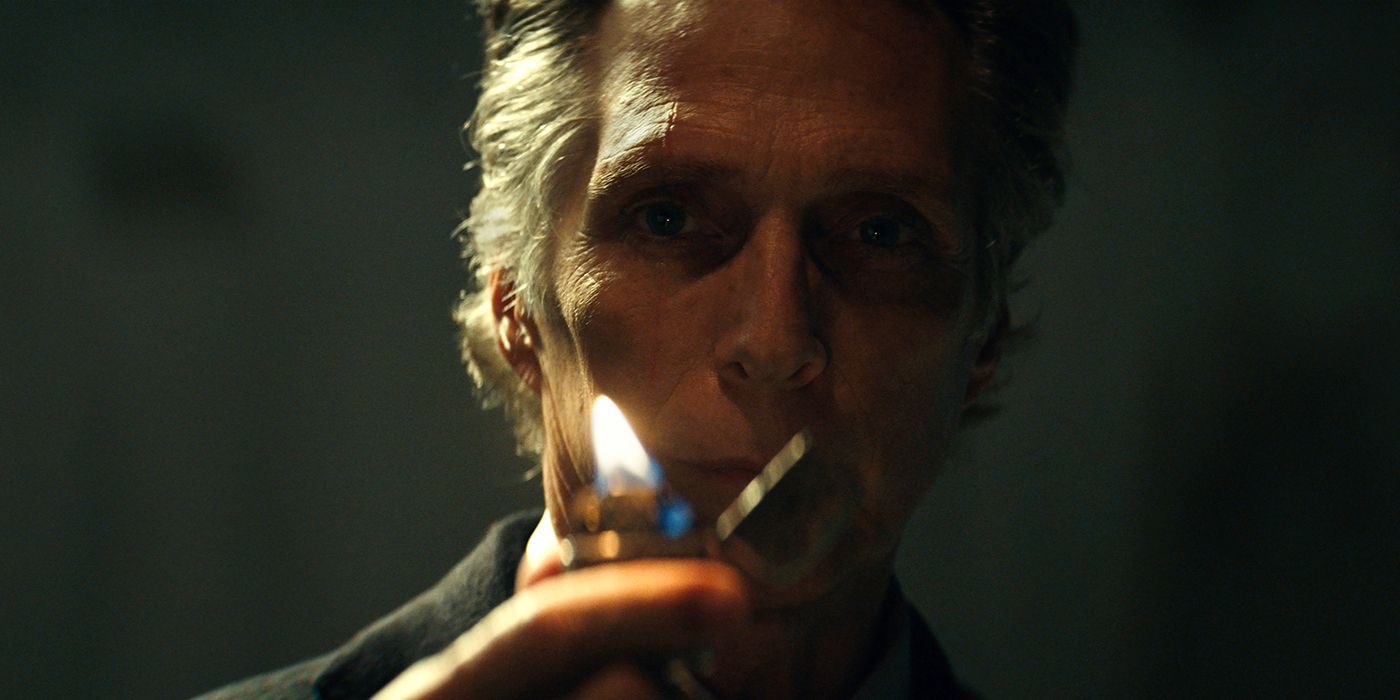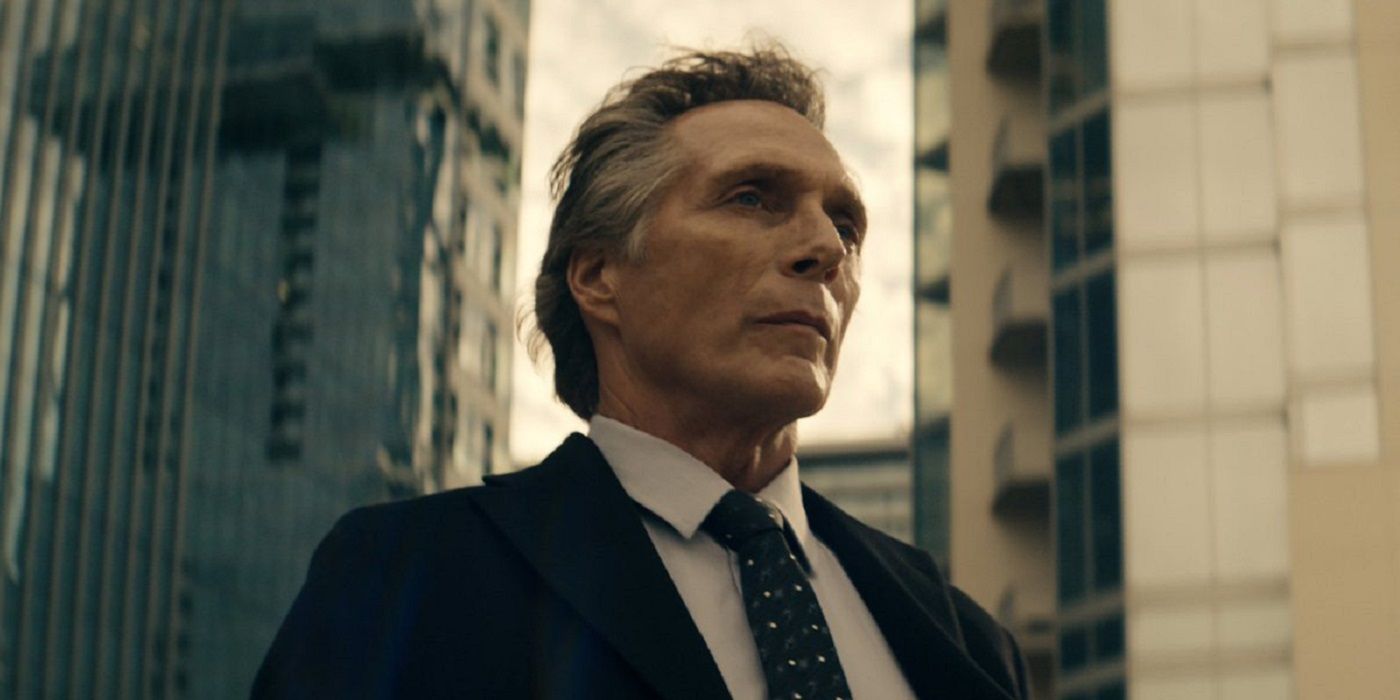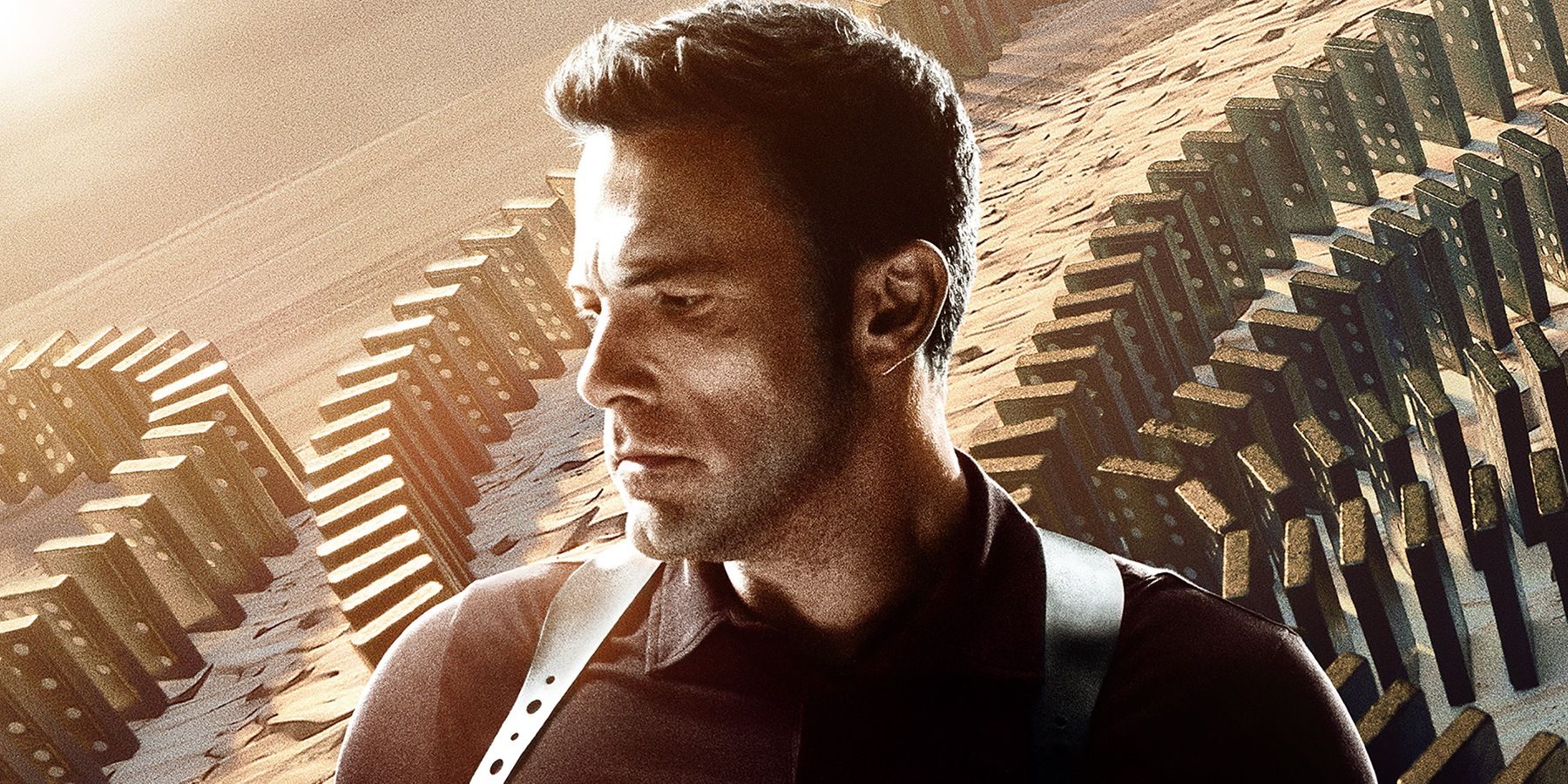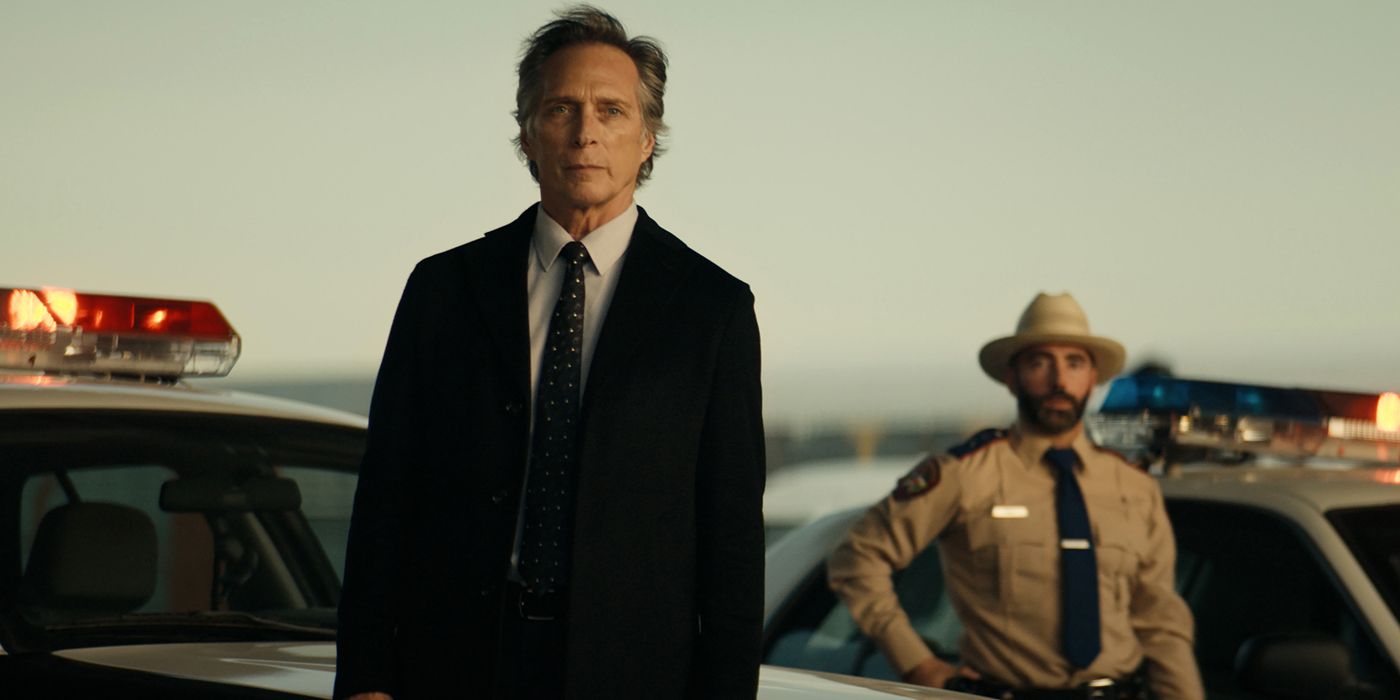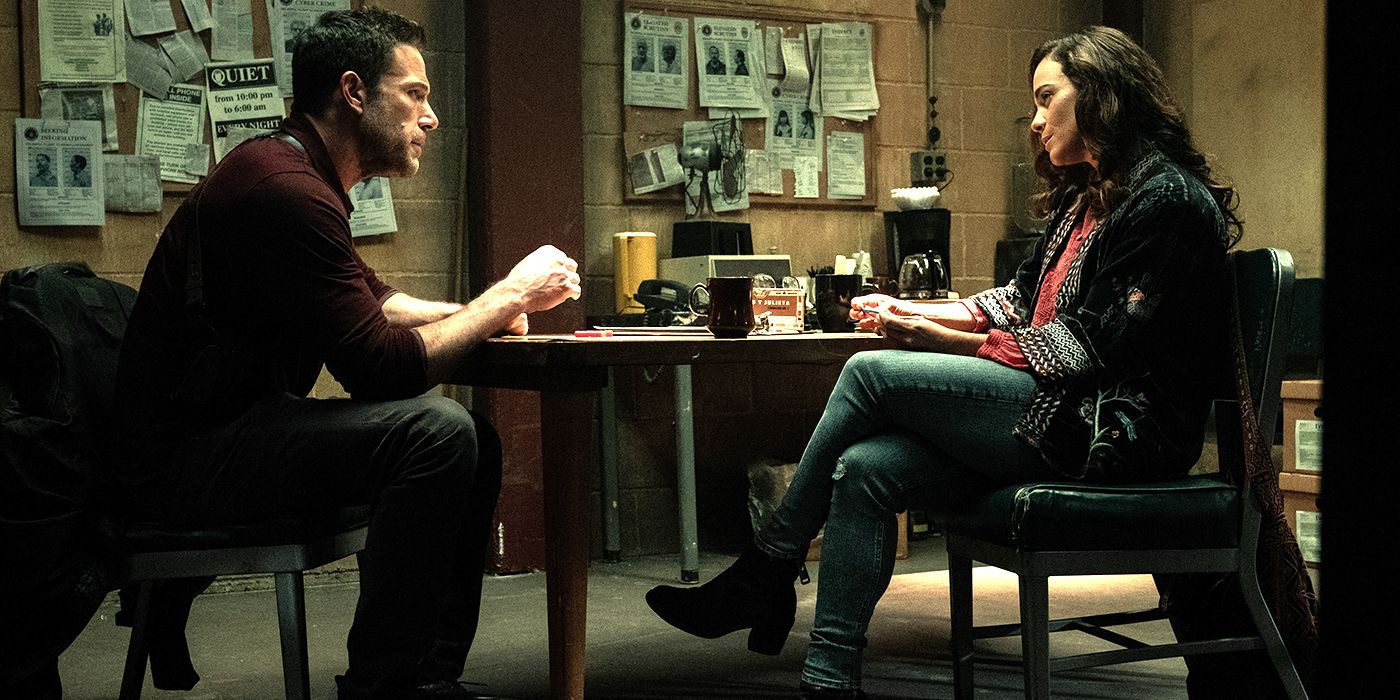Hypnotic is a mind-bending thriller full of twists and turns, and its ending is just as complex and mysterious as the rest of it. Directed by Robert Rodriguez and starring Ben Affleck, Alice Braga, and William Fichtner, it follows Detective Danny Rourke (Affleck) as he connects a series of bank robberies around Austin, Texas to his missing daughter Minnie, who may still be alive if he can figure out her location. Dogging his every move is Dellrayne (Fichtner), an enigmatic man with the power to control multiple people’s actions through hypnosis, and who will stop at nothing to obtain the last piece of evidence Rourke has of his daughter’s whereabouts.
Rourke eventually learns from a psychic named Diana (Braga) that Dellrayne is a Hypnotic whose mind-controlling abilities were cultivated by a government-funded initiative called The Division, of which Braga was also a part, as well as Rourke himself before he intentionally altered his memories. Thanks to carefully placed triggers, Rourke’s memories slowly start coming back, including the ones involving Diana as his wife and Minnie as their daughter. With the final pieces of the puzzle in place, Rourke is able to outwit The Division long enough to find Minnie, culminating in an explosive showdown that has a few more tricks up its sleeve.
The Hypnotics’ Powers & How They Work Explained
Hypnotics are unique individuals who have the ability to control the minds of whomever they choose, either by forcing them to perform actions or to see reality in an intentionally altered way. Dellrayne demonstrates this early on in Hypnotic when he tells a woman, “It’s very hot today” and she starts taking her clothes off, and in another later scenario, Diana is able to make a woman believe she’s on a beach building sandcastles when she’s really inside her apartment. Hypnotics can also warp another person’s reality to such an extent that they can appear as another person, and the most powerful can even control world events.
Dellrayne’s mind control is why Nicks, Rourke’s former friend and colleague didn’t really get shot earlier in the film and can reappear during Hypnotic’s ending confrontation. It’s also why Minnie can make Dellrayne think he’s shot her grandmother and grandfather, only for them to appear alive at the end. What’s less clear is if there always has to be a body left over from these encounters to maintain the illusion, and when exactly it will wear off and a person’s true identity be revealed.
How Minnie Was Able To Take Out The Entire Division
By the time Rourke reunites with Minnie, three years have passed, and in that time she’s been honing her abilities as a Hypnotic. As the daughter of two Hypnotics, her ability to control the minds of others is even greater than Rourke’s and Diana’s, and as Hypnotic’s ending reveals, superior to Dellrayne’s as well. She’s able to control the minds of dozens of The Division members who are sent to capture her and bring her back to their facility, as well as make them believe they’re at a remote farmhouse, when they’re really in front of a shack.
Similarly to how Dellrayne was able to force the two officers pursuing him at the beginning of the film to shoot each other, Minnie is able to force members of The Division to turn their guns on each other, effectively eliminating themselves as a threat. It’s a particularly useful trick because her family is incredibly outnumbered and outgunned. She’s even able to get Dellrayne, who’s the only member of The Division to realize what’s happening, to shoot himself before her family escapes in a helicopter.
How The Domino Effect Led Rourke To Find Minnie In Hypnotic’s Ending
As Diana explains to a confused Rourke midway through the film, the reason Dellrayne can’t control his mind so easily is the same reason he can’t remember where his daughter is; he has a mental block. The photograph of Minni that reads, “Find Lev Dellrayne” is not just an anagram for “Deer Valley Lane” which is where Minnie is, but the first trigger that he specifically put in place to help him remember where his daughter is. Eventually, more triggers occur which have a “Domino Effect” and more of his memories are unlocked.
The photograph is a useful device because its mystery isn’t solved until later in the film, when it becomes central to the plot, much like in Christopher Nolan’s confusing movie Memento, where photographs are used to inspire memories and keep a man sane. The photograph ends up triggering another memory in which Rourke remembers that Diana is actually his wife Vivian, and has been the whole time, patiently waiting for the time when she can explain everything about The Division to him in a way he can process. Then, when he finally acknowledges everything has been a simulation, he can choose to break free and head to Deer Valley Lane.
How Dellrayne Secretly Survived & What His Post-Credits Scene Means For Hypnotic’s Ending
After Minnie makes Dellrayne shoot himself, she boards a helicopter with her parents and her grandmother while her grandfather (Rourke’s foster father) stays behind. It’s more than a little odd that he wouldn’t accompany them, and it’s soon shown why; Dellrayne only made the others think he was Rourke’s foster father through mind control. He picks up a gun and slowly walks in the direction of the receding helicopter, contemplating his next plan of attack for finding Minnie and bringing her back into The Division’s fold.
The fact that Dellrayne isn’t dead sets up a possible Hypnotic sequel, and of Hypnotic’s cast of characters, he definitely has potential as an even more enigmatic villain. Fichtner portrays him with sly menace, and he appears as indefatigable as the T-1000 from the Terminator franchise as he relentlessly pursues Rourke and his family. This could easily be the start of an effective mid-budget sci-fi franchise if Rodriquez decides to do some more world-building.
The Real Meaning Of Hypnotic’s Ending
Hypnotic has a lot of themes that crystallize in its final moments, and for a movie with so many film noir twists and turns, they are the most grounding. By the end of Hypnotic, Rourke has his family back together and most importantly, they get to choose how they’ll live, not some secret government agency. Ironically, three Hypnotics who were renowned for their ability to control people just want to be left alone to make decisions for themselves, and they learn that next to family, free will is one of the most precious things in life.
Hypnotic may be burdened by exposition and comparisons to other mind-bending movies like Memento, Inception, and The Matrix, but its concepts are thought-provoking nevertheless. It posits that memories and experiences make a person who they are, and one of the reasons Rourke is so dead-eyed and laconic during the film is because he’s given up his memories to protect his daughter, essentially exchanging a personality for her safety. In the final scene of Hypnotic, Rourke has all his memories and is whole again, and while he shares a tender moment with his family, he smiles for the first time.

